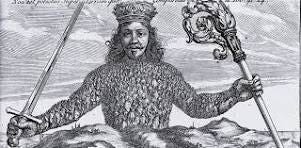Carl Schmitt—the Nazi jurist whose work has influenced both the contemporary left and right—presents himself as a religious, Catholic, anti-liberal, yet his critique of liberalism is neither consistent with the Biblical tradition nor with religious history.
Schmitt’s use of theology is itself modern and innovative. My critique of Schmitt is analogous to …
Keep reading with a 7-day free trial
Subscribe to What Is Called Thinking? to keep reading this post and get 7 days of free access to the full post archives.



